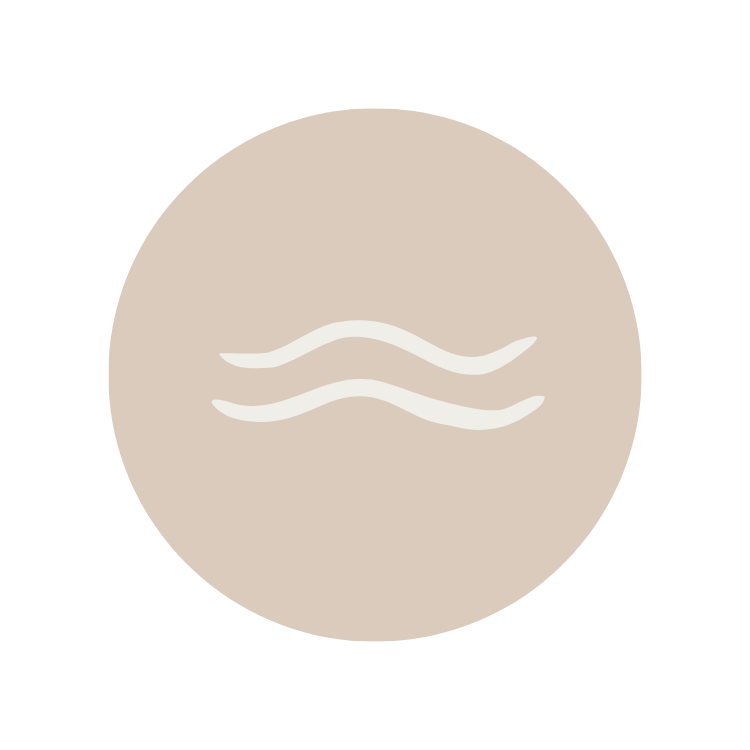Why is Chinese medicine holistic and what does that mean?
The term 'holistic' has been thrown around a lot in the internet world lately. With the increase in popularity of alternative health and healing modalities as go-to therapies, I've found it's definitely a keyword that is starting to grab attention. But what exactly is holistic and what does it even mean? It obviously has something to do with what it sounds like, being "whole", but it's actually a bit more complex than that.
'Holistic' can be described as a comprehension of parts to something whole. In health and medicine, it means looking at the entire body in not only its physical anatomy and physiology, but a person's mental, spiritually, and emotional body. It takes into account every single factor influencing a person, whether tangible or not, to conclude a theory and put a treatment into place.
Now, what isn't holistic? Most of modern day, Western medicine is NOT holistic. Meaning, it takes a look at a physical problem at the cellular or biological level, without looking at the entire picture of the human. This does not mean it doesn't treat the mental or emotional body. There are dozens of treatments and medications for symptoms such as depression or ADHD. But more often than not, a practitioner of Western medicine will only take a look at a singular problem, and prescribe the correct treatment that will influence a specific biological component of the body. Is this bad? Absolutely not. Western treatment is extremely complex, well researched, and innovative of a medicine. But is it always beneficial? No.
THE PROBLEM WITH NOT LOOKING AT THE WHOLE PERSON FOR TREATMENT:
Such a zoomed out approach can have dire consequences. If a medication is successful at preventing heart attack and stroke, that's great! But with Western medicine there are high risks of side effects with most medication, sometimes even more serious than the actual problem one is starting out with.
What happens is that the main problem was masked, and in masking problems it is undeniable that new problems will come into play. It can be a scary spiral downward if not watched carefully. And how did all of this happen? An approach to medicine that is too zoomed in and hyper-focused at solving one problem without paying attention to the health and well-being of the entire body, including the mental, emotional, and spiritual factors of influence, can have drastic consequences for the rest of the body.
THE BENEFITS OF A HOLISTIC TREATMENT
When looking at every component of the body, it is easier to see the root of the problem. Instead of looking only at the skin in cases of eczema or acne, a holistic treatment will try to solve the root problem of why the skin condition is occurring. For example, maybe a hormonal imbalance is at play, an allergic reaction or skin infection, perhaps a clogged liver? Holistic medicine will treat the root cause of the problem instead of masking the superficial symptoms with a steroid cream, antibiotics, or birth control. It may be easier to simply take a pill and have your complaints fixed, but more often than not, the treatment will not have long lasting results. If the root problem is not fixed, additional symptoms will eventually begin to appear until the problem has a complex array of disorders, making it a lot more difficult to treat, and a lot more serious of a problem!
THE BEAUTY OF TRADITIONAL CHINESE MEDICINE AS A HOLISTIC THERAPY
Although you may come in with a sore shoulder or a toothache, you'll find that your Acupuncturist will still ask you dozens of more questions about the rest of your body: how you're sleeping, if you've been having any trouble with digestion, your bowel movements, your ability to concentrate, if you've been feeling angry lately, etc. This is because a well rounded picture is required for an accurate diagnosis according to TCM principles. Acupuncturists want to get to the root of the problem that is most likely causing you the multiple symptoms you didn't even know were connected.
Want to learn more about strategies you can use to fix your period problems?
📘Access my FREE e-book: How to Start Balancing your Hormones: Fix Your Period Without Overwhelm.
📗My Eating for Hormone Balance e-book breaks down everything you need to know about diet and your hormones. Learn about the basic macros, how to support gut health, what to do about inflammation, and more!
📞 Book a free 15 minute discovery call to see if we're a good fit to work together.
👩🏻💻 Book a 60-90 min initial consultation where we work 1:1 to dig deep into your health history to figure out the root causes of your period problems. From there I provide you with an individualized treatment plan and consistent support along the way.
🏫 Period University™ is the ultimate self-paced online course that teaches you EVERYTHING you need to know about your period and hormones.
In healing,
Allison

